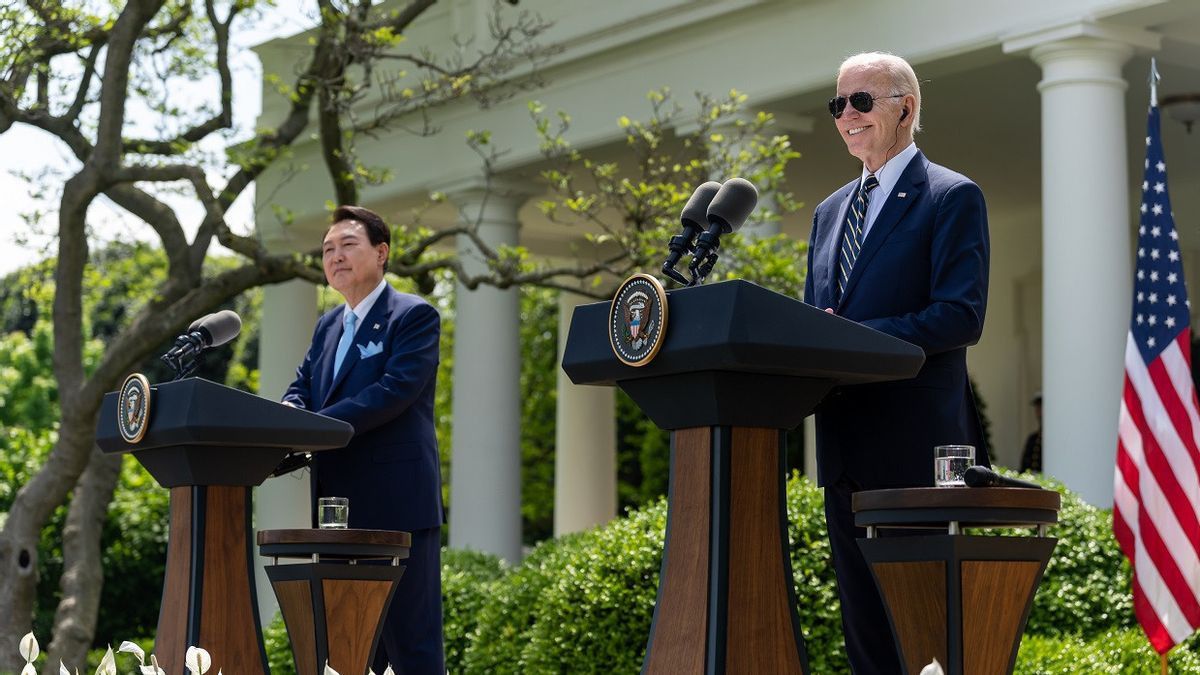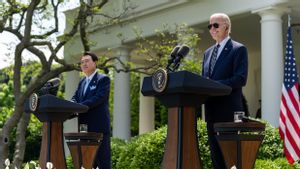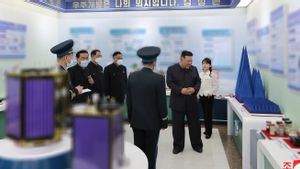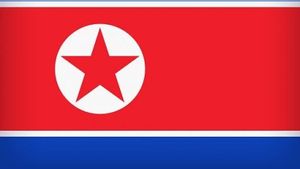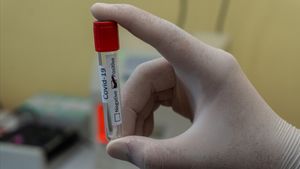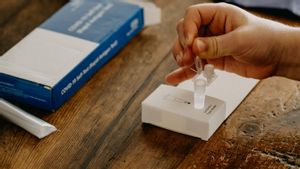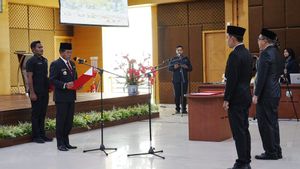JAKARTA - The US and South Korea have reached an important agreement to counter North Korea's nuclear threat. Washington has agreed to deploy US nuclear-armed submarines periodically to South Korea and engage Seoul in its nuclear planning operations.
In return, South Korea has agreed not to develop its own nuclear weapons.
The agreement between the two countries follows concerns about North Korea's nuclear threat. Reporting from the BBC, Thursday, April 27, Pyongyang is developing a tactical nuclear weapon that could target South Korea and perfect its long-range weapons that could reach the US mainland.
The US already has an agreement obligation to defend South Korea, and has previously pledged to use nuclear weapons if necessary. But some people in South Korea began to doubt the commitment and called for the country to continue its own nuclear program.
South Korean President Yoon Suk-yeol during a state visit at the White House said,
Washington's declaration marks an unprecedented commitment by the US to bolster defenses, prevent attacks, and protect US allies using nuclear weapons.
China issued a warning not to intentionally increase tensions, provoke confrontations, and play threats.
The new deal is the result of several months of negotiations, according to a senior administration official.
Under the new deal, the US will make its defense commitment more visible by sending nuclear-armed submarines to South Korea for the first time in 40 years, along with other strategic assets, including nuclear-capable bombers.
Both sides will also develop a Nuclear Consultative Group to discuss nuclear planning issues.
Politicians in Seoul have long prompted Washington to engage them more in planning how and when to use nuclear weapons against North Korea.
As North Korea's nuclear arsenal has grown in size and sophistication, South Koreans are increasingly wary of not knowing what will trigger Biden to press the nuclear button on their behalf.
Fear that Washington will leave Seoul has led to calls for South Korea to develop its own nuclear weapons. But in January, Yoon worried policymakers in Washington.
Yoon became the first South Korean president to reimpose the idea of making his own nuclear within decades. To prevent South Korea from making nuclear, the US must offer something concrete.
"This is a big win for South Korea to engage in nuclear planning," said Duyeon Kim of the New American Security Center.
"Until now, table training will end before Washington's decision to use nuclear weapons," Kim said.
"The US has considered such information too secret to share, but it is important to practice and train this scenario given the type of nuclear weapons North Korea produces."
The new Nuclear Consultative Group checks the box, providing increased engagement requested by the South Korean government. But the bigger question is whether it will quell public anxiety.
That does not imply a total commitment from the US that they will use nuclear weapons to defend South Korea if North Korea attacks.
However, on Wednesday Biden said "North Korea's nuclear attack on the United States or its allies and partners is unacceptable and will result in the end of any regime taking such action."
In return, the US has demanded that South Korea remain a non-nuclear country and a loyal non-proliferation supporter of nuclear weapons. The US sees preventing South Korea from nuclear as important, afraid if it fails, other countries can follow in its footsteps.
Washington's declaration will strengthen allied cooperation in preventing North Korean attacks, US President Joe Biden said.
But this US commitment is unlikely to completely satisfy the ruling South Korean group of academics, scientists, and members of the ruling South Korean party, and has become increasingly vocal, which has prompted Seoul to arm itself.
Dr Cheong Seong-chang, South Korea's main supporter to become nuclear, said that although the declaration had many positive but regrettable aspects.
"It is regrettable that South Korea has publicly relinquished its right to withdraw from the Nuclear Non-Proliferation Treaty [NPT]. It further strengthens our nuclear shackles," he explained.
President Biden said the US was continuing efforts to return North Korea to the negotiating table. Washington said Pyongyang had ignored many requests to speak without preconditions.
The US hopes to convince North Korea to release its nuclear weapons, but last year North Korean leader Kim Jong Un declared the country's nuclear status "irreversible".
Some experts say it now makes more sense to discuss arms control than denuclearization.
VOIR éGALEMENT:
The English, Chinese, Japanese, Arabic, and French versions are automatically generated by the AI. So there may still be inaccuracies in translating, please always see Indonesian as our main language. (system supported by DigitalSiber.id)
